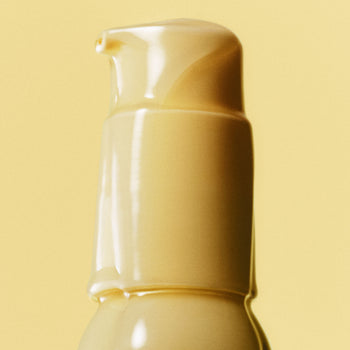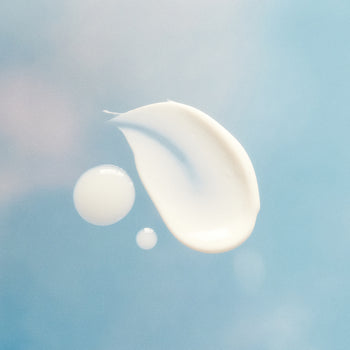
Skincare Myths: Which Are You Falling For?
Unless you’re entirely off the grid (in which case, hi, but how are you reading this?), you know that there’s infinite information and infinite opinions on skincare, and that not all of it is relevant for you or your skin. So, how can you sort out what’s true vs what’s trending? The answer is always science. We’ve come armed with skincare facts that can help you better distinguish fundamental truths from viral soundbites that will help you build a trusted skincare routine.
Myth #1: The longer your skincare routine, the better for your skin.
FACT: Wouldn’t that be easy? In reality, longer doesn’t mean better. The elaborate get-ready-with-me’s are lying to you—skin is more nuanced than that. Because we all have unique skin needs, your skin is the only factor that can truly determine what’s best for it. A ten-step regimen might serve to irritate your skin more than it does treat, or it might be just what your skin needs to be its healthiest.
The best way to find out is to start simply. A tried and true impactful skincare routine is only made up of three products: cleanser, moisturizer, and sunscreen.
-
Cleansers remove the impurities of the day (good cleansers do so without stripping your skin of its hydration)
-
Moisturizers replenish, nourish, and strengthen that freshly clean skin (and are sometimes packed with active ingredients you’d look for in a serum)
-
Sunscreen protects skin against the sun and its aging effects (no matter what the weather may be)
It may not feel like it, but if you’ve got that simple routine down, you’re ahead of the curve. You might be thinking, “I want more.” If so, that’s great! The keyword is want. When you’re well-versed in cleanser, moisturizer, and sunscreen, you can start to think about adding serum, retinol, eye cream, occlusives, or any other products that can help you treat unique skin goals.
Myth #2: “Clean” skincare is always better
FACT: There’s no regulation behind what “clean” even means, making the word more of a marketing ploy than a marker of safety. At Dieux, our focus is on ensuring all products are tested for safety, stability, and efficacy, and we recommend looking out for language like that over “clean” language when selecting skincare. Safety might look like what kinds of regulations skincare brands follow during formulation (for instance, EU regulations are more strict than those in the US), or whether brands follow Good Manufacturing Practices.
You might also recognize seeing “free-from” language (think: parabens, sulfates, etc), but what about considering what brands are including or doing to ensure formulas are safe? For instance, what kinds of patch tests are being used? Are formulas being clinically vetted? And what about sourcing? When it comes to ingredients, “clean” implies being naturally derived. Keep in mind, mining nature isn’t always good for nature. To get enough of any given resource, it may take a lot away from the environment to get enough of it, and can take a long time for the resource to regenerate. Sometimes, sourcing ingredients from labs (like the biotech-derived ingredients found in some of our formulas) can be the most ethical choice, especially when it comes to offsetting our impact on the environment.
All in all, nuance is everything. “Clean” is ambiguous, so it’s most important to make sure you’re taking care of your skin in a way that aligns with your needs and values.
Myth #3: Having dry skin means you need to drink more water.
FACT: Okay, most of us could stand to drink more water, but it’s more likely that dry skin is an indicator of a damaged skin barrier. This might be seasonal for some and a year-round issue for others, but the solution is the same: hydration and moisturization.
That’s right—hydration is not moisturization. And even though these terms are sometimes used interchangeably in life, they shouldn’t be in skincare.
Hydrating means flooding the skin with water. It adds water to the surface of the skin that wasn’t there to begin with. Hydrating ingredients like humectants (think: glycerin, urea, hyaluronic acid) attract water from the depths of the skin and bring it to the surface, as well as provide their own hydration, and retain it.
Moisturizing means preventing water loss. Where hydrating provides water, moisturizing locks it in. Emollients and occlusives (like lipids and ceramides) seal in hydration by creating a barrier on the top of the skin, preventing TEWL (trans-epidermal water loss), aka water evaporating away.
For dry skin, this combination is necessary. A consistent hydration and moisturization routine is the solution, especially with products that are formulated with barrier support in mind.
Myth #4: Having oily skin means you don’t need a moisturizer.
FACT: Oily skin needs moisture as much as any other skin type! Contrary to popular belief, oily skin can sometimes be an indicator of dehydrated skin. The excess sebum produced by oily skin might be the skin overcompensating for dryness/damage, and moisturizing it helps regulate and balance this production.
A good rule of thumb is to know that moisture is always key, but your skin type determines what kind of moisture is best. Oily skin types will benefit from lightweight moisturizers like gels, lotions, or serums, rather than heavy creams. Look out for non-comedogenic products that are formulated to nourish without clogging pores, and for ingredients that hydrate without adding extra oil, like glycerin.
Fewer myths, more mythical skin
Common skincare myths are everywhere, but science can keep you from being led astray. Remember, there are the skincare fundamentals that will always be true, like simplicity and consistency, and then there are 1,000+ other opinions that may or may not be relevant to you and your skin. We’re happy to be a resource in helping you find clarity on all things skincare. Follow us for ongoing education info, straight from our team at the lab. And if you have any questions or thoughts on skincare myths, you can always reach out to us at hello@dieuxskin.com.
Sources
https://dermalogica.com.vn/en/blogs/living-skin/da-dau-co-can-duong-am#:~:text=But
https://foradermatology.com/lets-talk-skin/do-i-need-to-moisturize-my-oily-skin#:~:text=%E2%80%9CMy
https://www.verywellhealth.com/do-i-need-a-moisturizer-if-i-have-oily-skin-15595#:~:text=Look
https://www.healthline.com/health/beauty-skin-care/hydration-moisture







